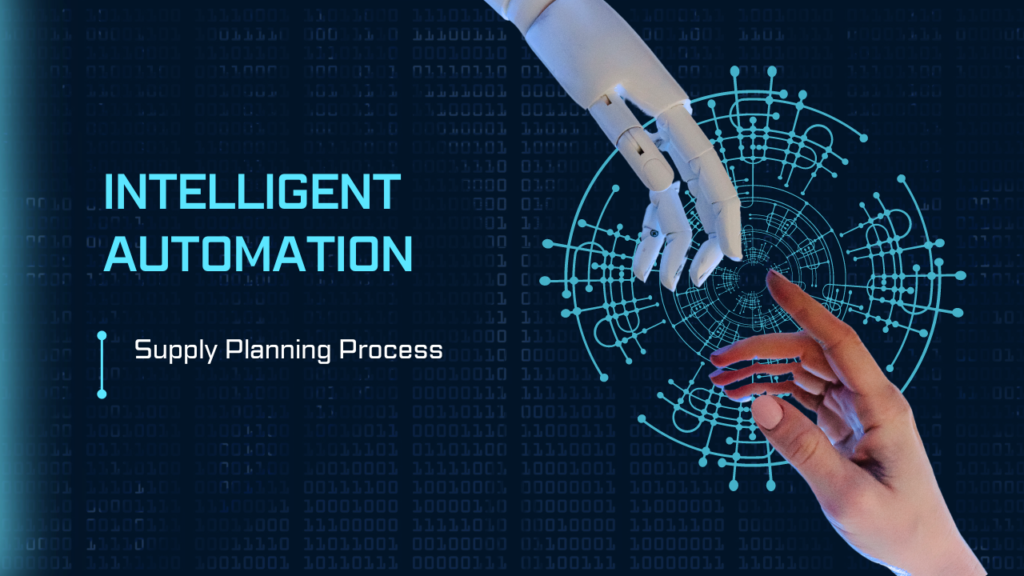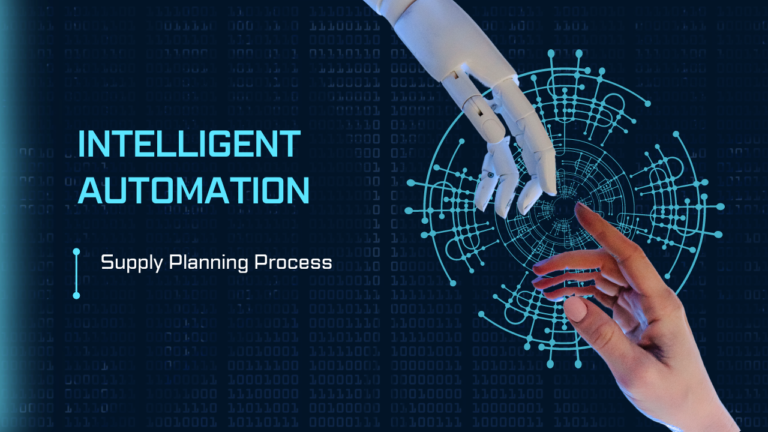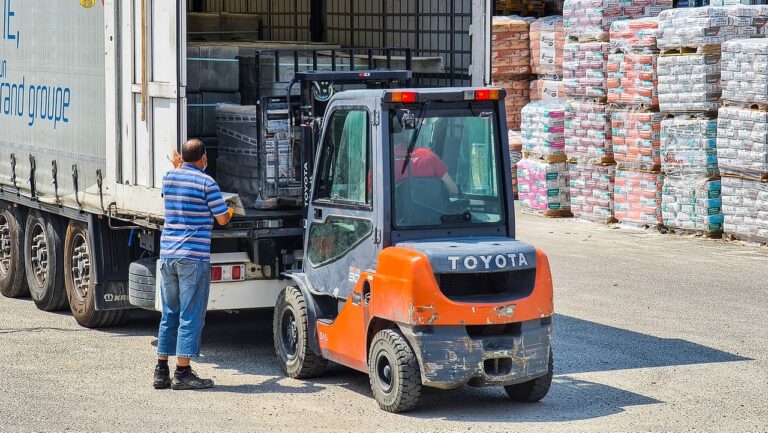Introduction:
Intelligent Automation is generating considerable interest amongst academia and industry practitioners for enabling informed decision making in complex and dynamic business processes.
Supply planning one such business process, weighing the merits and risks of intelligent automation against the cost of status quo operations.
Intelligent automation has the potential to accelerate the supply planning process. Based on discussions with different industry professionals, this blogpost presents the potential application areas and risks of implementing intelligent automation in supply planning process.
What is Intelligent Automation?
Intelligent Automation (IA) combines Robotics Process Automation with Artificial Intelligence (AI) capabilities and enable humans to make fast and accurate decisions.
Intelligent Automation, Intelligent Process Automation, and Hyperautomation are all related terms that are interchangeably used to describe the use of automation technologies in business process improvements.
A quick memory jogger on some of the enabling technologies used in Intelligent Automation –
Robotics Process Automation (RPA) | RPA enables software robots (Bots) to mimic manual routine tasks like email query handling and reduce the operational errors in a transactional process |
Machine Learning (ML) | ML uses algorithms (models) to emulate human learning and make contextual recommendations based on continuous learning from different datasets |
Natural Language Processing (NLP) | NLP blends technology with human linguistics. It provides computers with the ability to process human language in the form of text or voice data |
Natural Language Generation (NLG) | The self-learning capabilities of NLG provide a computer with the ability to respond in a human language based on the analysis of the unstructured text/voice data |
Optical Character Recognition (OCR) | OCR is used to extract and repurpose data from scanned document texts, and images |
How Does Intelligent Automation Differ from Robotic Process Automation?
Intelligent Automation is an enhancement of RPA and not an alternative solution. IA bridges the existing tools and system landscape than introduce new one.
Intelligent Automation
- Automate judgment based business process that have a high degree of human intervention
- Interprets both unstructured (documents, images and audio files) and structured data
- Virtual assistant to humans, providing credible information for making fast and accurate decisions
Robotic Process Automation
- Automate repetitive and rules based process tasks which have minimal variation
- Works with structured data – predefined and easily searchable system data from relational database
- Mimics back office operator to complete a set of data administration tasks on a computer screen.
What is Supply Planning?
The objective of supply planning is to ensure an optimal supply of company products to meet the anticipated customer demand.
It is an integral part of the supply chain planning process and aims to improve the flow of goods, services, and information from suppliers to customers, considering the constraints of capacity and material availability.
Supply planning is a critical function that encompasses the entire planning process across the source, make and deliver operations of the supply chain lifecycle.
A supply planner plays a crucial role in developing optimal supply plans that best satisfy the forecasted demand while reducing the inventory levels and lead time gap through effective supplier management.
“The lead-time gap is the difference between the time taken to procure, make and deliver finished goods to a customer and the time a customer is prepared to wait “(Christopher, 2016).
Efficient supply planning is a process lever for a company to achieve its financial and service level objectives. It can optimize the cost of operations, provide a competitive advantage and reduce the risk of costly stockouts or excess inventories.
What are the Challenges in Supply Planning?
There are a multitude of supply planning challenges arising from the dynamic market conditions such as fast-changing customer preferences, shrinking product life cycles, and increasing volatility in supplier fulfillment.
The challenges are often compounded by the operational bottlenecks of disjoint processes and silos of IT systems in an organization. These barriers lead to a lack of credible information exchange and poor supply chain visibility across the extended network (company and suppliers), contributing to material flow delays and an increase in lead time gaps.
The role of a supply planner is becoming more challenging as significant time is spent in overcoming information constraints and handling exceptions to meet production plans and customer service levels.
Gathering the latest information for supply planning is a tedious exercise as system recommendations are not reliable due to the poor quality of data records. Due to these data reliability issues, the tasks of a supply planner are more manual, error-prone, and time-consuming.
“It takes up to 4 days in a week to prepare an optimal supply plan – by pulling, cleansing, and consolidating data from different systems and files.” – Supply Planner
In addition, supply planners could spend 30% to 40% of their time on administrative tasks such as report generation, ad-hoc meetings, and preparation for S&OP reviews.
These manual and repetitive activities are a big source of frustration and leave little quality time for supply planners to focus on their KPIs such as –
- Optimize inventory levels (working capital)
- Improve forecast accuracy (supply meets demand)
- Improve supplier delivery performance (time & quality)
Can Intelligent Automation Accelerate Supply Planning?
Unlike other business functions like finance and HR, supply chain planning processes are in the early stages of adopting automation technologies.
The complexity of a judgment based supply planning process coupled with data inconsistency issues from different systems have limited the use of a rules based RPA system.
IA overcomes the shortcomings of RPA and leverages the AI capabilities to tide over the structural impediments of an exception-ridden supply planning process.
Research suggests that a combination of RPA and different AI technologies have the potential to accelerate the supply planning process.
The self-learning capabilities of IA can handle large volumes of unstructured and structured data, orchestrate contextual information and support supply planners to make fast and accurate decisions.
Supply planners no longer have to crystal ball supply scenarios based on a fragmented pool of information. The minimally invasive IA solution can automate information flows, reduce lead times and positively impact the supply planning process capabilities.
Opportunities: Potential Application Areas in Supply Planning
Supply planners do not trust system recommendations due to the poor data exchange and inconsistencies arising from different systems and tools.
IA could start with a focus on efficient data management and build trust amongst the supply planner community. Based on research and discussions with industry practitioners, the potential application areas for IA in supply planning are –
Process Area | Potential Tasks for Automation |
Data Management |
|
Order Processing & Fulfillment |
|
Purchase to Pay |
|
Risks: Potential Roadblocks to Intelligent Automation
The expected gains of IA will depend upon how the purpose-built solution is able to positively impact the people, process, and technology dimensions of an organization.
Despite the number of opportunities, there are some risks associated with the deployment of IA –
Dimension | Risks |
Technology |
|
Process |
|
People |
|
Recommendations to Mitigate Risks
- Organizations should consider running a digital assessment to find the maturity of the underlying processes and IT infrastructure
- Run a proof of concept project first to evaluate the potential benefits and business case for enterprise level roll out
- Formulate a change management strategy to drive open communications, build employee trust and develop a culture of continuous improvement.
- Establish a Centre of Excellence (CoE) team to program manage the production deployment and ensure the active adoption of IA within the target user community
- Conduct regular transparent security audits to trace any vulnerabilities from cyber threats
Closing Thoughts
Intelligent automation has the potential to accelerate the supply planning process. The self-learning capabilities of IA overcome the shortcomings of a traditional RPA and orchestrate contextual information for making fast and accurate supply decisions.
Intelligent Automation will collaborate and not replace human judgment. It provides the possibility to enhance the productivity of a supply planner by reducing data inconsistencies, developing credible baseline forecasts, and providing credible system recommendations.
Organization should look at intelligent automation from a strategic lens than a one-time operational break-fix solution. It offers a technology lever to reduce lead times, enhance service levels and improve the competitive advantage.
References:
Flechsig C. (2021). The impact of intelligent process automation on purchasing and supply management – Initial insights from a multiple case study.
Alicke, K., Hoberg, K., & Rachor, J. (2019). The supply chain planner of the future. Supply chain management review.
Alicke, K., Ganesh, K., Ganguly, S., Shinghal, S. (2022, March 2). Autonomous supply chain planning for consumer goods companies. Mckinsey
Ng, K. K. H., Chen, C.-H., Lee, C. K. M., Jiao, J. (Roger), & Yang, Z.-X. (2021). A systematic literature review on intelligent automation: Aligning concepts from theory, practice, and future perspectives.
Viehhauser, J. (2020). Is Robotic Process Automation Becoming Intelligent? Early Evidence of Influences of Artificial Intelligence on Robotic Process Automation.
Syed, R., Suriadi, S., Adams, M., Bandara, W., Leemans, S. J. J., Ouyang, C., ter Hofstede, A. H. M., van de Weerd, I., Wynn, M. T., & Reijers, H. A. (2020). Robotic Process Automation: Contemporary themes and challenges.
Flechsig, C., Anslinger, F., & Lasch, R. (2021). Robotic Process Automation in purchasing and supply management: A multiple case study on potentials, barriers, and implementation.
Berruti, F., Nixon, G., Taglioni, G., & Whiteman, R. (2017). Intelligent process automation: The engine at the core of the next-generation operating model. Digital McKinsey.





